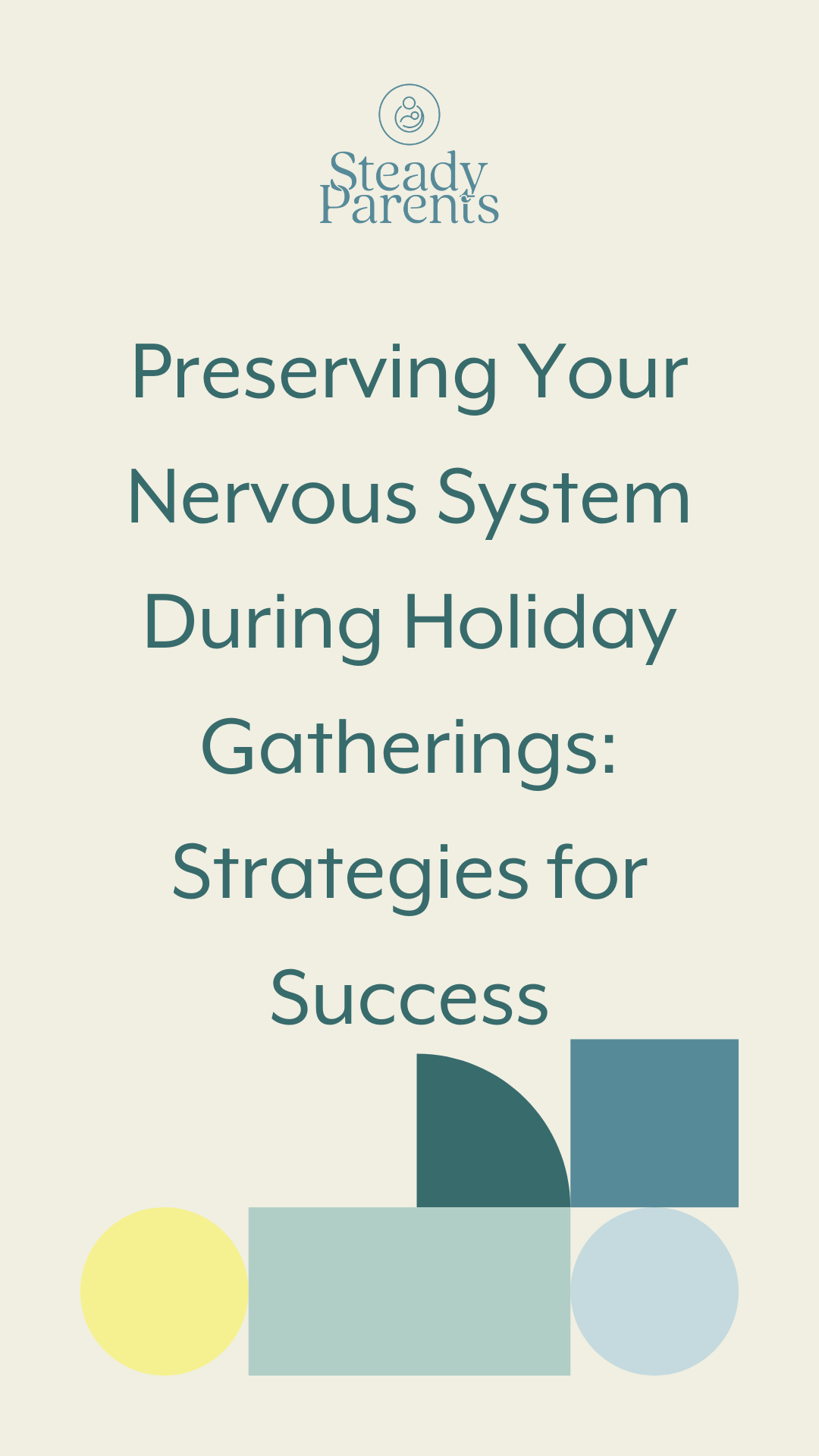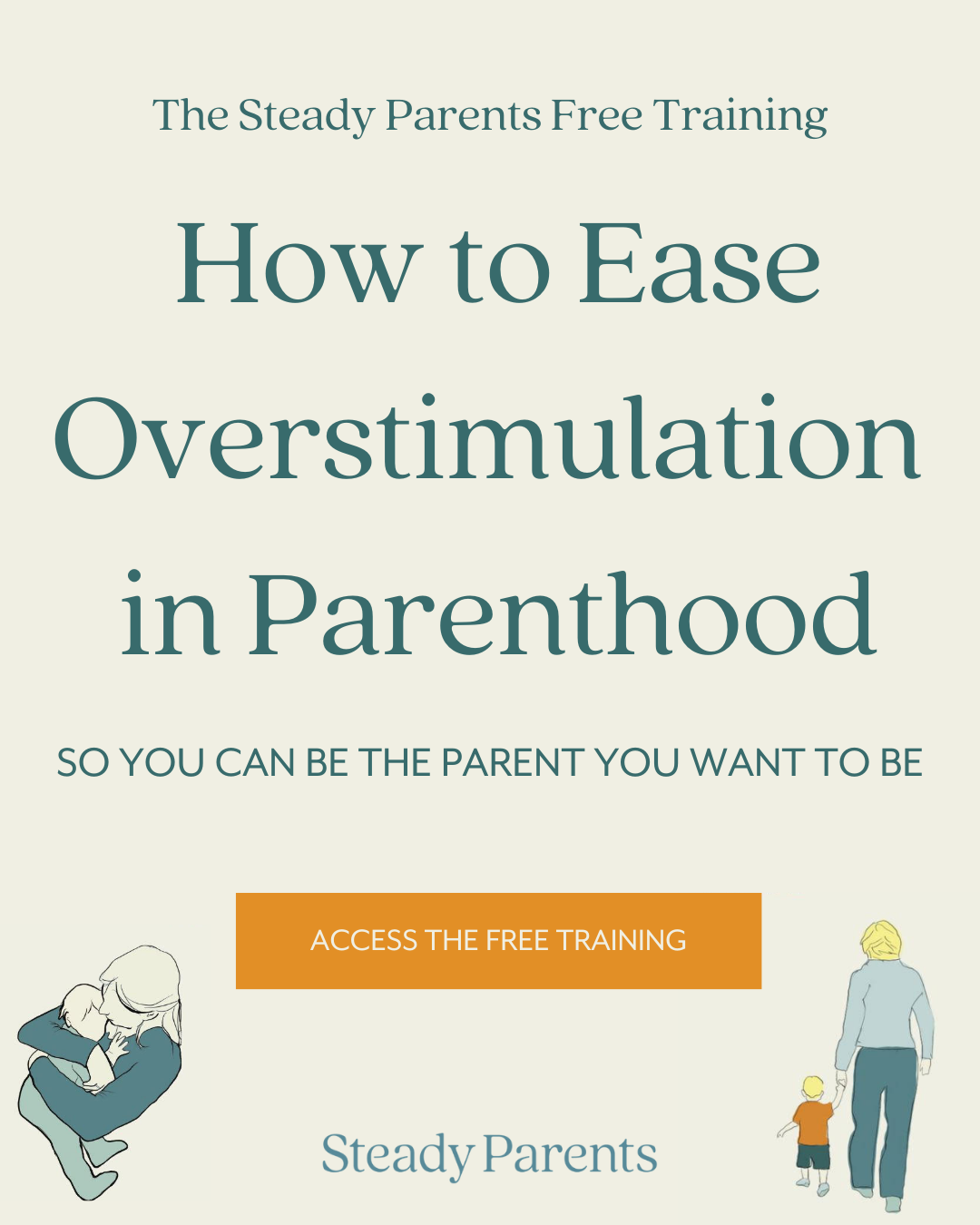Why Are the Holidays So Hard? Sensory Dysregulation Plays a Big Role
As an occupational therapist specializing in sensory processing, I often hear from parents that they feel especially overwhelmed during the holiday season.
As much as we try to be present and soak create memorable family traditions, it’s hard to be present when our mind is racing through the mile-long to-do list. Decorating the house, shopping and wrapping presents, and the millions of school dress-up days and activities can send us over the edge.
Festivities, family gatherings, and decorations that are supposed to make us feel joyful, can create an environment of sensory overload that leads to stress and exhaustion. In fact, 18% of parents feel high levels of stress during the holiday season (Source: National Poll on Children’s Health)
In this blog post, we'll explore three reasons why the holiday season is more stressful for parents, the challenges posed by family gatherings, and practical ways to make holiday celebrations more manageable while preserving your nervous system from sensory dysregulation.
Why are the holidays so stressful?
1. Sensory Overload Everywhere
The holiday season bombards us with a sensory feast – twinkling lights, festive decorations, loud music, and the different smells of holiday foods and Christmas trees. While these elements contribute to the festive atmosphere, they can be overwhelming for parents and children with sensory sensitivities.
Walking into Target at the end of October, the holiday decor is already starting to get put out which serves as a reminder for moms of all of the impending chaos and to-dos. For those prone to sensory dysregulation, the constant bombardment of sights, sounds, and smells can quickly lead to feelings of stress and anxiety.
Whether you’re hosting a family gathering or simply attending one, consider creating sensory-friendly spaces within your home to make the holidays more manageable. These areas can serve as retreats for both parents and children when the stimulation becomes too intense.
Use soft lighting, comfortable seating, and noise-canceling headphones to create a calming environment that allows for sensory breaks during the festivities.
2. Demands of Social Expectations
Family gatherings are a hallmark of the holiday season, bringing loved ones together to celebrate. While these events can be joyous occasions, they often come with their own set of challenges, particularly for parents managing sensory sensitivities.
The pressure to engage in social interactions, navigate crowded spaces, and adhere to traditional customs can be overwhelming.
Family reunions may also stir up unresolved emotional trauma from the past that can be triggering and cause anxiety.
If the idea of a large family reunion or being around certain family members feels daunting, consider opting for smaller, more intimate gatherings. Inform family members about any sensory sensitivities or preferences in advance, fostering understanding and support.
Even those who don’t celebrate the traditional winter holidays can feel pressured to attend events, despite the stress they know they will feel. Ultimately, you get to decide what is right for you and your family. Setting healthy boundaries and expectations can make a huge difference in your holiday experience.
3. Changes in Routine and Structure
The holiday season often disrupts our regular routines, and for individuals with sensory sensitivities, this change can be particularly challenging. Children, in particular, thrive on routine, and alterations to their daily structure can contribute to sensory dysregulation.
As parents, we try to be the calm in their storm but when we, too, are dealing with disruptions in our routine, it can be hard to co-regulate. The combination of disrupted schedules, irregular sleep patterns, and exposure to new stimuli can create a perfect storm for stress and overstimulation.
To minimize the impact of these disruptions, try to maintain some semblance of routine during the holidays. Establish consistent mealtimes and bedtimes, even if they deviate slightly from the usual schedule. This can provide a sense of predictability and stability, helping to regulate sensory experiences and reduce stress.
Family Gatherings: A Double-Edged Sword
While family gatherings are an integral part of the holiday season, they can also be a significant source of stress for parents. Navigating the expectations, social dynamics, and sheer volume of people can be overwhelming.
For individuals who may already be feeling sad at Christmas or those with sensory sensitivities, family gatherings can exacerbate these emotions.
One effective strategy to manage family gatherings is to establish a quiet, designated space for breaks. Communicate with family members about the importance of these breaks and set clear boundaries.
“Deep breathing and earplugs are helpful for most but when you understand your unique nervous system, it’s easier to find coping strategies that work for YOU! ”
Preserving Your Nervous System During Holiday Gatherings: Strategies for Success
Now that we've explored the challenges, let's delve into practical strategies to make holiday gatherings more manageable and preserve your nervous system from sensory dysregulation.
1. Communicate Openly
Communication is key when it comes to managing sensory sensitivities during the holidays. Be open and honest with family members about your needs and the needs of your children.
Share information about sensory sensitivities, triggers, and coping strategies to foster understanding and create a supportive environment.
If you and your partner aren’t on the same page or you find yourself more annoyed with your partner than usual this time of year, having an open conversation before the holiday season begins can make a huge difference.
Now included in the Sensing Your Needs in Parenthood program, is a guide for communicating with your significant other about your different sensory needs called Navigating Needs Together.
For more information on sensory differences in marriage, check out my recent blog post here.
2. Plan Ahead
Planning is crucial to ensure a smooth holiday experience. Create a schedule that allows for breaks and incorporates sensory-friendly activities. If attending a family gathering, arrive early to acclimate to the environment and provide your child with time to adjust. Having a plan in place can help reduce uncertainty and potential stressors.
Download the FREE Touched-Out Guide ↓
3. Embrace Technology
Technology can be a valuable ally in managing sensory dysregulation during the holidays. Consider using noise-canceling headphones, sensory apps, or calming music to create a soothing auditory environment.
My free “I’m Touched Out” audio guide and “The Overstimulated Parent’s Guide to Road Trips” are great tools for this time of year. Listen to guided meditations and prompts to help calm your nervous system in the moment.
Download the FREE Road Trip Guide ↓
4. Set Realistic Expectations
It's essential to set realistic expectations for yourself and your family during the holiday season. Understand that it's okay to decline certain invitations or opt for a quieter celebration at home. Prioritize self-care and recognize the importance of preserving your mental and emotional well-being.
Deep breathing and earplugs are helpful for most but when you understand your unique nervous system, it’s easier to find coping strategies that work for YOU!
5. Create Sensory-Friendly Traditions
Establishing sensory-friendly holiday traditions can help make the season more enjoyable for everyone. Consider activities that cater to sensory preferences, such as decorating a quiet room with soft lights or engaging in tactile crafts.
These traditions can become cherished moments that bring joy without overwhelming sensory input.
It’s also more than okay to leave behind those typical traditions that don’t work for you or cause you unwanted anxious feelings.
If having your children help with holiday cooking and baking is fun for you, be sure to check out my recent blog post: 10 Helpful Cooking Tips for Busy, Dysregulated Parents.
The point is, you can make your holiday traditions based on the needs of your own family, and not feel guilty or pressured for not conforming to your familial, societal, or cultural norms.
“The point is, you can make your holiday traditions based on the needs of your own family.”
Survive The Holiday Season
In conclusion, the holidays can be a challenging time for parents, particularly those navigating sensory sensitivities. By understanding the reasons behind the heightened stress during this season and implementing practical strategies, parents can make holiday gatherings more manageable for both themselves and their children.
Remember, it's okay to prioritize your family's well-being and create a holiday experience that aligns with your unique needs and preferences.
With thoughtful planning, open communication, and a commitment to self-care, you can navigate the holidays with greater ease and joy.
Pin this for later:








